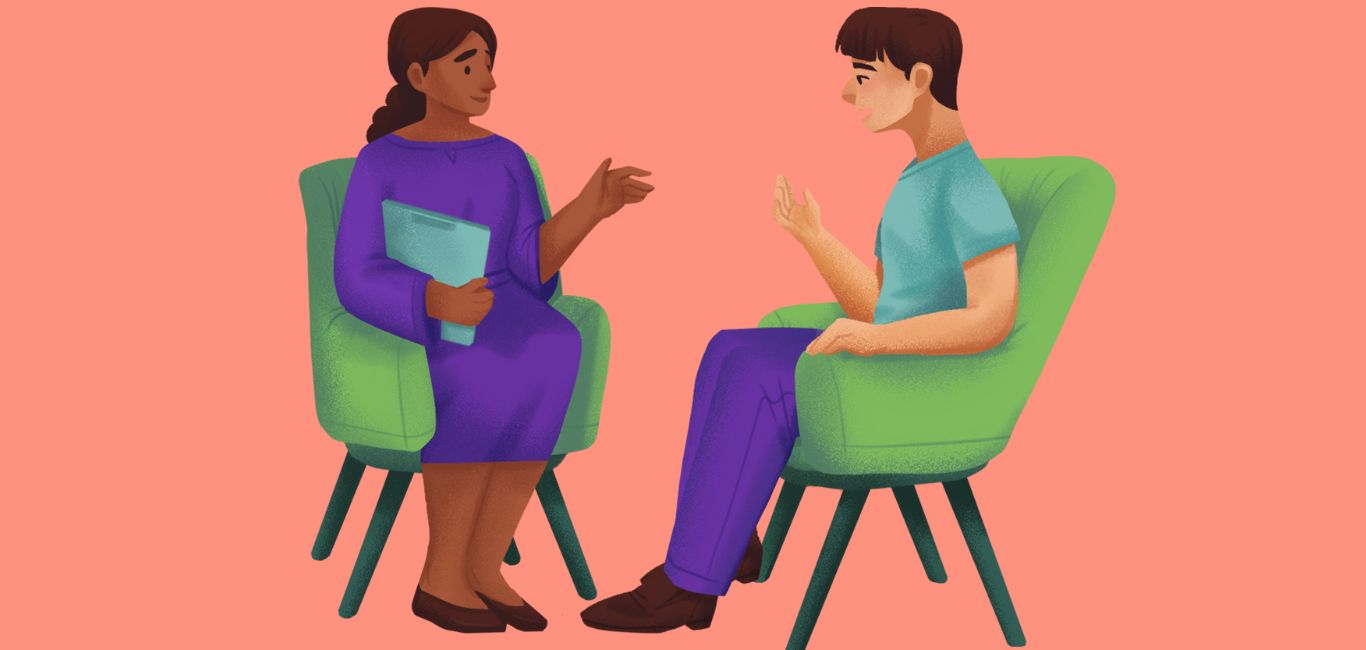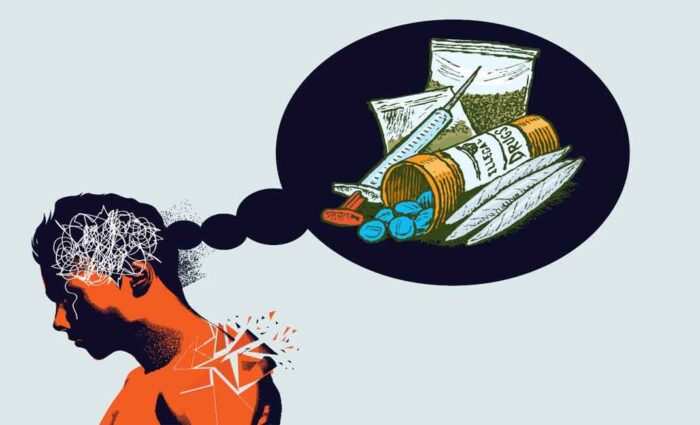Drug abuse refers to the excessive, inappropriate, or illegal use of substances (legal or illegal) that affect a person’s physical,
mental, emotional, or social well-being. It involves taking drugs in a way that is harmful or not intended by medical
professionals. Examples includes using drugs for the “high” rather than medical purpose. Regularly using substances that alter mood or perception. etc
Drug addiction, also known as substance use disorder (SUD), is a chronic, relapsing brain disorder characterized by the compulsive use of drugs, loss of control over intake, and negative emotional and physical effects when not using the substance.
Why Is It Called a Disease?
Addiction is not a moral failing—it’s a medical condition that alters brain structure and function. The parts of the brain
affected by addiction include:
• Reward center [dopamine system]
• Prefrontal cortex [decision-making]
• Amygdala [emotional regulation]
• Hippocampus [memory]
”These changes make it extremely difficult for a person to stop using drugs without professional help”
Commonly Abused Drugs
• Alcohol – Depressant, widely abused due to easy access.
• Nicotine – Found in tobacco, highly addictive.
• Cannabis (Marijuana) – Used recreationally or medically, still abused in many cases.
• Prescription Drugs – Painkillers (opioids), tranquilizers, stimulants.
• Cocaine and Crack – Strong stimulants, high risk of addiction.
• Heroin – An opioid with severe physical dependence potential.
• Methamphetamine (Meth) – Extremely addictive stimulant.
• LSD, Ecstasy, Mushrooms – Hallucinogens that alter perception.
• Inhalants – Solvents like glue or spray paint that give a temporary high
Signs of drug abuse
Physical Signs
• Bloodshot eyes or pupils that are larger or smaller than
usual.
• Sudden weight changes (loss or gain).
• Poor hygiene or neglected appearance.
• Frequent nosebleeds (common with snorted drugs like
cocaine).
• Track marks on arms or other areas from injecting drugs.
• Tremors, slurred speech, or impaired coordination.
Behavioral Signs
• Changes in friend groups or avoiding family and old friends.
• Secrecy or lying about whereabouts and activities
• Decline in performance at school or work
• Loss of interest in hobbies or activities once enjoyed
• Stealing or borrowing money frequently
• Legal trouble or frequent run-ins with law enforcement
• Neglecting responsibilities at home, school, or work
Psychological & Emotional Signs
• Mood swings or sudden outbursts of anger.
• Paranoia, anxiety, or excessive nervousness.
• Depression or apathy.
• Confusionor difficulty concentrating
• Hallucinations or delusions
• Increased impulsivity or risk taking behaviour.
Impact of Drug Abuse on the Brain and Physical Health
Effects on the Brain
Drug abuse severely alters how the brain functions. It interferes with normal brain chemistry, structure, and signaling pathways, particularly in areas related to reward, decision-making, and memory.
1. Dopamine Disruption
• Many drugs (like cocaine, meth, and opioids) flood the brain with dopamine, a neurotransmitter linked to pleasure.
• Over time, this leads to reduced natural dopamine production, making it hard to feel pleasure without the drug (a condition called anhedonia).
2. Cognitive Impairment
• Long-term use can damage areas responsible for memory, learning, attention, and judgment.
• Example: Marijuana and alcohol use in adolescents may lead to reduced IQ and poor academic performance
3. Mental Health Disorders
• Drug abuse increases the risk of or worsens depression, anxiety, psychosis, paranoia, and suicidal thoughts.
• Drugs like LSD or meth can trigger hallucinations or schizophrenic episodes.
4. Brain Shrinkage and Damage
• Chronic alcohol or inhalant abuse can lead to brain atrophy (shrinkage).
• Opioids can cause hypoxia (low oxygen), leading to brain damage over time.
Effects on Physical Health
Drug abuse doesn’t only affect the mind — it damages almost every organ system.
1. Heart and Circulation
Stimulants (e.g., cocaine, meth) can cause:
o High blood pressure
o Irregular heartbeat
o Heart attacks
o Stroke
2. Liver and Kidneys
Alcohol and prescription drug abuse (like acetaminophen with
opioids) can cause:
o Liver inflammation (hepatitis)
o Cirrhosis
o Kidney failure
o Chronic bronchitis
o Lung infections
o Respiratory depression or failure [especially with opioids]
o Lung infections
3. Immune System Suppression
Long-term use of many drugs weakens the immune system, making users more prone to infections and illnesses.
4. Infectious Diseases
• Injecting drugs increases risk of:
1. HIV/AIDS
2. Hepatitis B and C
3. Skin infections or collapsed veins
6. Malnutrition and Weight Loss
• Appetite suppression (common with meth and cocaine)
• Poor nutrition and self-care habits.
Cycle of Drug Abuse
1. First Use – A person tries a drug out of curiosity, peer pressure, or to feel better.
2. Regular Use – They start using it more often and feel like they need it to cope or have fun.
3. Tolerance – The body gets used to the drug, so they need more to feel the same effect.
4. Dependence – They feel sick or anxious without the drug (this is withdrawal).
5. Addiction – Using the drug becomes a habit they can’t control, even when it causes problems.
6. Crisis or Recovery – The person may face serious issues (like health or legal problems) and either seeks help or continues the cycle.
Times Health Care offers you de-addiction counselling
• Therapists will teach you healthy ways to handle cravings, stress, and negative emotions without turning to drugs.
• Counselling helps to uncover underlying issues like trauma, depression, anxiety, or stress that often lead to substance abuse.
• Times health care provides Family or group counselling to repair damaged relationships, build trust, and create a healthy support network.
Goals of Counseling
• Understand the causes of addiction
• Recognize and manage triggers
• Develop healthy coping mechanisms
• Rebuild relationships and social skills
• Prevent relapse
• Improve mental health and self-esteem



